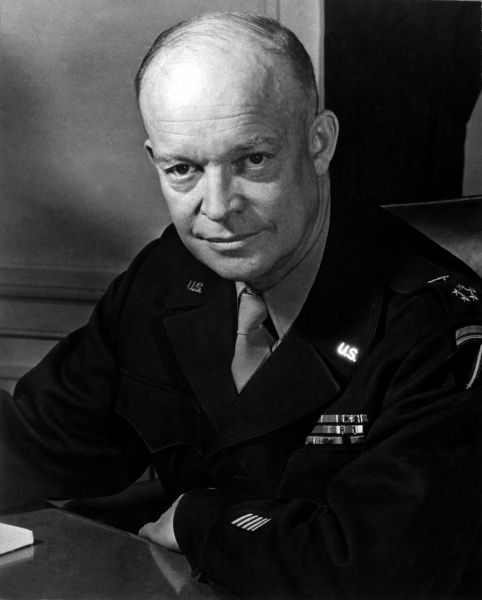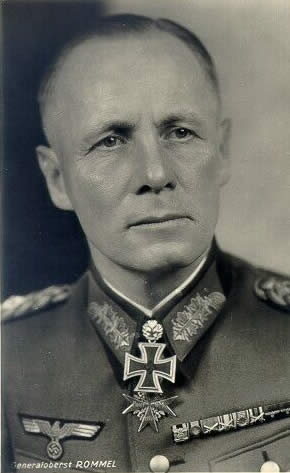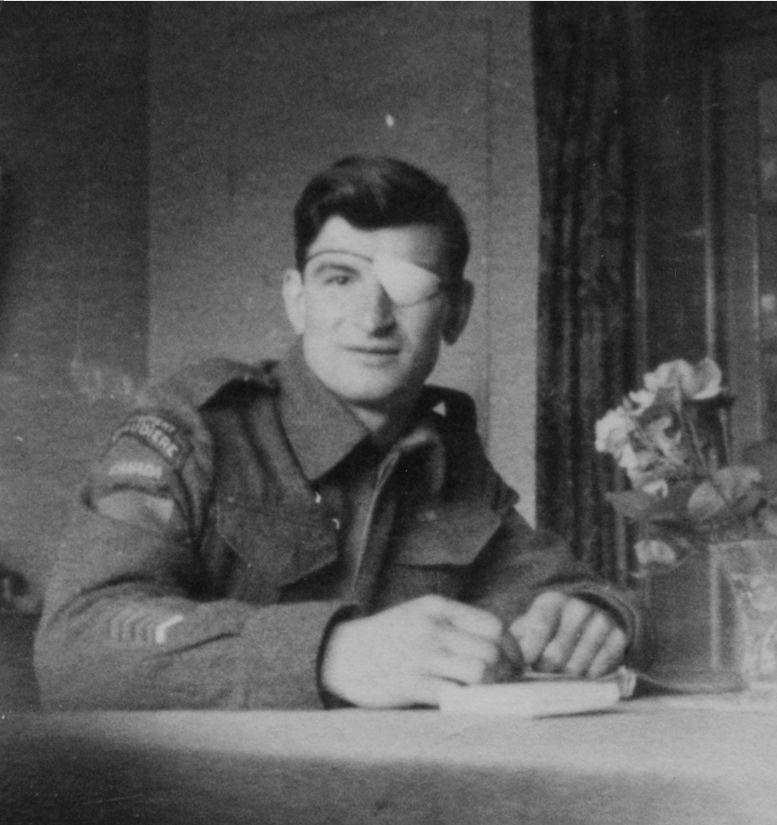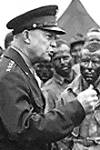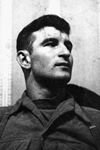The Battle Fronts
By Maj.-Gen. Sir Charles Gwynn K.C.B., D.S.O.
The War Illustrated, Volume 8, No. 184, Page 99, July 7, 1944.
It is high time to stop using the term Second Front. It has long ceased to be accurate, though it conveniently defined out strategic aims. Now that those aims have taken concrete shape we should, I think, talk of the Western Front until such time as the general term is superseded by the names of its sub-divisions.
The landings in Sicily and at Salerno gave some indication of the immense preparations that have to be made for a large-scale amphibious operation – sufficient at least to silence those who had clamoured for the immediate opening of a second front as if it were only necessary to give the order. Yet few can have realized the complexity of the task until D-Day was passed and General Montgomery's armies were safely established on the coast of Normandy.
Fewer still, I think, realized the risks of failure or the consequences of failure which might disastrously have affected the whole strategic situation and have prolonged the war indefinitely, even if it had not affected its ultimate issue. The mere fact that Rommel – who, if no great strategist, is at least an excellent tactician – was confident that the beach defences were impregnable should make us realize the greatness of our achievement and the risks of failure involved.
Before the war it was generally and justifiably held that it had become more than ever impracticable to land a large modern army with all its essential equipment on the coasts of a fully armed and prepared enemy. All the tactical advantages that modern weapons had conferred on the defence over the attack could be exploited even more effectively than in a purely land battle. While, strategically, the mobility conferred by mechanization and improvements in road and railway communication to a large extent reduced the advantage held by a seaborne force of being able to mask its intention till the last moment.
Even if a surprise landing could be effected (which was improbable in view of the potentialities of air reconnaissance and the strictly limited stretches of coast which at all favoured attack) the defenders' reserves could be moved to the danger point more rapidly than the attacking force could disembark in strength. Uncertainty of weather conditions and the necessity to capture a port which would ensure the uninterrupted landing of heavy material added considerably to the manifold difficulties of the invader.
Enemy's Labour and Ingenuity Finally Brought to Nought
What has brought this seemingly impossible enterprise into the category of practical operations and successful achievement in spite of the immense labour and ingenuity the enemy had expended in making security double sure? Primarily, it was the refusal of one man, or perhaps a small group of men, to admit impossibilities, and their courage and foresight in embarking on preparations extending over a period of years and on an unprecedented scale with one object in view – a triumph of Faith.
Obviously, the first essential was to establish such naval and air supremacy as would ensure a high degree of protection to the armada in its passage across the sea and during the actual landing. Yet preparations were set in motion long before it could be guaranteed that the requisite degree of supremacy would ever be attained. Actually it was recognized that the danger of underwater and air attack, especially at night, although it might be minimized, could never be completely eliminated and the risks were courageously accepted. Some idea has been given by the Press of the immense organization that had to be built up; of the numbers of ships that had to be constructed and assembled, of the great variety of landing craft that had to be designed and build, and of the amount of specialized training that had to be given to all concerned in the operation. Yet I doubt if any single brain can grasp the full complexities of the preparations. They were the achievements of a great team working together to a single end, but with highly specialized functions; and the results were amazing.
General Eisenhower's Call to the Invasion Troops
Soldiers, sailors and airmen of the Allied Expeditionary Force! You are about to embark upon the great crusade toward which we have striven these many months. The eyes of the world are upon you. The hopes and prayers of liberty-loving people everywhere march with you.
In company with our brave Allies and brothers-in-arms on other fronts, you will bring about the destruction of the German war machine, the elimination of Nazi tyranny over the oppressed peoples of Europe, and security for yourselves in a free world.
Your task will not be an easy one. Your enemy is well trained, well equipped and battle-hardened. He will fight savagely.
But this is the year 1944! Much has happened since the Nazi triumphs of 1940-41. The United Nations have inflicted upon the Germans great defeats, in open battle, man-to-man.
Our air offensive has seriously reduced their strength in the air and their capacity to wage war on the ground. Our Home Fronts have given us an overwhelming superiority in weapons and munitions of war, and placed at our disposal great reserves of trained fighting men.
The tide has turned. The free men of the world are marching together to victory. I have full confidence in your courage, devotion to duty and skill in battle We will accept nothing less than full victory.
Good luck! And let us all beseech the blessing of Almighty God upon this great and noble undertaking.
Order of the Day issued to each individual of the Allied Expeditionary Force, June 6, 1944.
What impresses me most is that this immense undertaking was launched in the full knowledge that the possibility of bringing it into fruition might never arise, and that, even if the opportunity materialized, vagaries of the weather or other unforeseeable circumstances might lead to disastrous failure in the course of a few hours. That so great a measure of success has been achieved is due mainly to the courage and efficiency of the human element – sailors, soldiers and airman – and the perfection of the equipment which they operated. Perhaps especial credit should be given to the efficiency of the Navy, including the Merchant Service, which was fundamental to the success of the operation. When one considers the number of amateurs recruited into these Services, and called on to carry out unfamiliar tasks often requiring a great display of initiative, it may well be questioned whether any but a nation with natural maritime instincts could have adapted itself to an undertaking so far outside the range of normal experience of war.
The success of the initial landing, apart from these considerations, turned, I think, on three bold decisions, all of which contributed an element of surprise. First and most courageous was the decision to start the operation in what the enemy deemed were prohibitive weather conditions. General Eisenhower presumably must have been ultimately responsible for the decision, though he could hardly have made it without the concurrence of his Naval advisers whose professional responsibility must have been even greater.
I cannot believe that the decision would have been made if it had not previously been decided, breaking away from all precedent, to start landing at low tide. For in a rough sea the enemy's laborate underwater defences would surely have proved an impassable obstacle. Now that it has been tried out, the landing at low tide may seem to have been an easy solution of the problem of dealing with the underwater obstacles on which the enemy so greatly relied – yet it was not a solution that would seem to have occurred to Rommel or to the designers of the defence system, strangely enough.
Courageous Decisions Helped to Win Battle of the Beaches
Of course, it involved the exposure of the assaulting troops to fire for a longer time. In the past it would also have meant manhandling heavy weapons over long distances. The possibility of landing tanks and other mechanical vehicles from the leading landing craft and the effective covering fire which could be directed by Naval guns and aircraft on the enemy's weapons sited to bear on the beaches, greatly reduced these former disadvantages; and obviously the importance of being bale to clear passage through the obstacles while they were exposed at low tide outweighed them. Rommel, confident in the impregnability of underwater obstacles covered by fire, had apparently committed an unduly high proportion of his available troops in his forward defences and trusted to his armoured reserves being sufficient to counter-attack at any point where his front might possibly be penetrated.
Also, there was the decision to land a large force of airborne troops in advance of the sea landing. It was a courageous decision, for if the seaborne force had failed to get ashore or had been seriously delayed, the airborne force must have been sacrificed to a man. In the event, the airborne force not only accounted for some of the enemy's weapons which bore on the beaches but, what was probably more important, engaged enemy reserves which might have been used in early counter-attacks on the beach-head.
Establishment of Bridge-head Primarily for Offense
These decisions all contributed to the winning of a protective beach-head. Thence-forward, disembarkation could proceed with little interference by the enemy. There remained to be accomplished, however, the establishment of a bridge-head covering a sufficient area to admit of the deployment of forces adequate to undertake major offensive operations. The establishment of a beach-head is essentially a defensive step – but a bridge-head, though partially intended to provide a defensive position in depth in which an enemy counter offensive in force can be met, has primarily an offensive object.
At the time of writing, the battle of the bridge-head is still in progress. Mich has been accomplished owing to the consistently offensive action of our troops, which from the first has compelled Rommel to use his reserves piecemeal in fierce costly counter-attacks, and to the delays imposed on the movements of his strategic reserves caused by air attacks on his road and railway communications. The battle of the bridge-head cannot, however, be considered to have been conclusively won until all enemy attempts to forestall our major offensive operations have been defeated, and until we are in possession of the port of Cherbourg as a guarantee that an uninterrupted volume of supplies and heavy equipment can be maintained. For instance, without an adequate port at which rolling stock and other railway material can be landed, our armies would have to operate without railway communications.
Previous and next article from The Battle Fronts
The Battle Fronts
When I wrote last it was clear that the initiative had passed to the Russians and that the Germans were in danger of a major disaster if they decided to cling to Orel at all costs; the capture of O
The Battle Fronts
The end of June found the Germans in by far the most serious strategical situation they had yet to face. The fall of Cherbourg meant the definite establishment of a western front, and the rapid collap
Index
Previous article
Britain's Colonies in the War: No. 10 - Cyprus
Strategic strong-point in the Eastern Mediterranean, Cyprus, which proved a deterrent bastion against further German progress in the area during the critical days of the African campaign, has been a B
Next article
The War at Sea
Though certain of the details have still to be filled in, enough is now known of the Allies invasion of Normandy to make it plain that it is the greatest as well as the most successful combined oper


